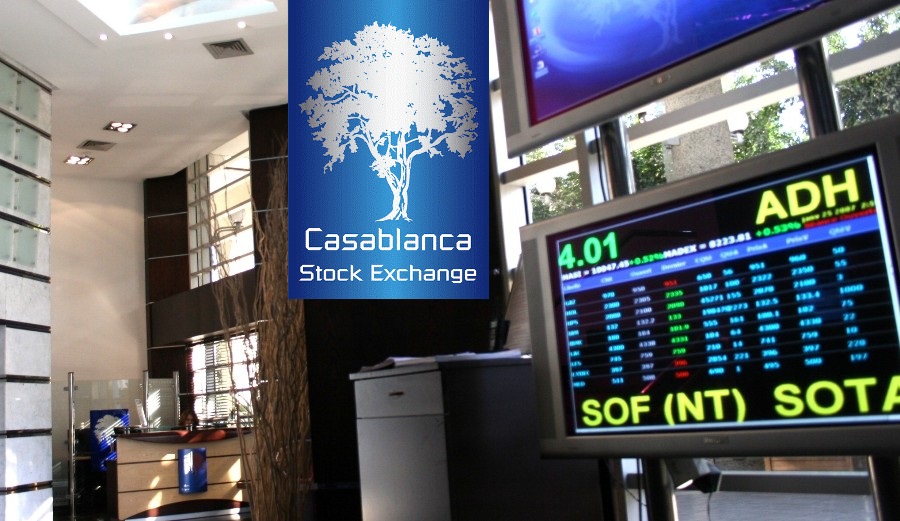« Economy will never be the same post pandemic » Mark Cuban says. Since people aren’t going to venture outside, large gatherings are prohibited, the old normal social life isn’t coming back; they won’t be confident right off the bat. Trepidation will settle in their souls, they will hold back on spending money, not only as goods consumers but also as investors. The pandemic will affect investors’ psychology which will reflect on the markets’ performance, we aren’t only talking about small traders and small fish, we’re also talking about whales. (Cuban, 2020)
So, if economy is willing to change, how would it become?
In this article we will be describing the recovery of the Moroccan Capital Market, three different scenarios are likely to happen, and we will be explaining each one of them by dividing it into three sectors in function of sectors’ sensitivity.
To put you in context, Casablanca exchange market started 2020 in good shape, its flagship index, Masi, reached a high of 12,633.57 points on January 22 and closed the first month of 2020 up 2.96%. However, BVC( Casablanca Stock Exchange), overtaken by psychosis linked to Coronavirus, collapsed in March, its two main indices, Masi and Madex, fell to 9,704.85 and 7,876.80 points respectively, recording declines of 20.85% and 21.26% respectively. Over the year, these two barometers posted negative performances of -20.27% and -20.59% respectively. In value, it is 123.67 million MDH of capitalization evaporated in the space of three months.
For that, analysis forecasts three possible scenarios to the evolution of this sanitary crisis, the first one assumes rapid control of the pandemic on a national scale, economic activity resumes normally by the end of May with vigorous demand to revitalize the national economy. Imported demand continues to be weakened by the slowdown in global growth, mainly impacting high sensitive sectors such as tourism, transports and mines, we couldn’t find numeric data for the first two sectors but for mining; Managem, CMT and SMI predict they won’t exceed 546MMdhs as operating profit.
In this scenario sensitive sectors such as banks are expecting no change in value of their shares or in their market activity’s variation, a decrease of the PBS intermediation margin by -4% and an increase of the risk coast by 0.8%, also cement sector, LafargeHolcim and Ciments du Maroc are willing to face a decrease by 17% and 18% respectively of their group share of net profit, which is directly impacting their dividend as much as their market value, same thing for Marsa Maroc by -28.6%, insurance companies will also face the same situation by -26% of their predicted results.
The second scenario incorporates a prolonged impact through the second quarter of the year, and a gradual recovery by the third quarter; this recovery will be slow due to high sensitive sectors’ (tourism, transport, mines) difficult situation, the tightening of the state investment budget because of high health expenditure and social subsidies, this would transfer the impact to other sectors such as banking, assurance, logistics and many more.
The central scenario expects, for highly sensitive sectors like mines, an operating income of only 234MMdhs. When it comes to sensitive sectors, banks forecast a decrease of 1% in their shares’ value, 10% in PBS intermediation margin and a 3% variation of their market activity, eventually their risk cost will increase by 0.95%. While cement companies and insurance companies will face a loss of -37.5% average and -28% respectively from their group share of net profit.
And here is the worst: the third scenario, it assumes an extension of the crisis until the third quarter of 2020, impacted by an economic recession in Europe and the United States which are slow to master the virus causing a sharp slowdown in global demand. In this scenario, the long-time of activities’ shutdown in certain sectors, namely tourism, automotive industry, construction industry and the unfavourable agricultural season, are the main influencing factors.
For this worst scenario mines are expecting a catastrophe, only 7MMdhs as operating income, banks predict a huge decrease in their shares’ value, in their PBS intermediation margin, and in the variation of their market activity by -3%, -10% and -5% respectively, therefore, their risk cost will increase by 1.1%. Concerning cement and assurance sectors, they will witness a huge decrease of 70% and 35% average respectively in their group share of net profit.
As you have realized the crisis impact in the three scenarios above is in function of sectors’ sensitivity; it is important to remind you, there are sectors who will be barely affected and we call them defensive sectors such as Telecom, retail, oil-gas and drinking water, sanitation and electricity , these sectors will not only be slightly affected but will also benefit from the crisis, for example: IAM leader of telecom sector in Morocco is expecting 6102 MMDH as group share of net profit compared to 2726 MMDH in 2019, despite the predictions their shares’ market value has decreased just as the rest of companies. This made us think about the huge impact of the crisis on investors’ psychology, on their behaviours, and on their strategies, which is consequently affecting market’s health and its recovery.
Therefore, the global earning capacity of BVC will decrease by 14% average, which is equivalent to 7.2 MMDH in volume, this is mainly due to the construction industry and the banking sector. Once we start talking about earning capacity, we’re automatically talking about dividends, profitability, the value of shares and the global value of the Moroccan Capital Market, and they are all going to suffer from the consequences.
To resume both Moroccan investors and companies will face big losses due to the coronavirus outbreak, and the market recovery will eventually take time. We should be aware that there is no financial nor mathematical theory to reduce these consequences, for that investors must have faith in the national economy, in the future and themselves.
A work done by:
- ZAHIRI SALMA;
- SAMIR SAID;
- SOUHAIL OUDAIME;
- ADAM OULLAH;
- OMAR OUAGLOU
Resources:
Statistics published by the CDG Capital Gestion




